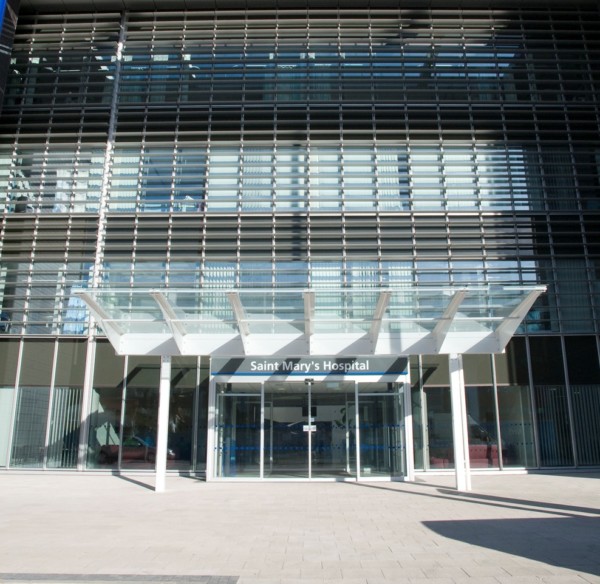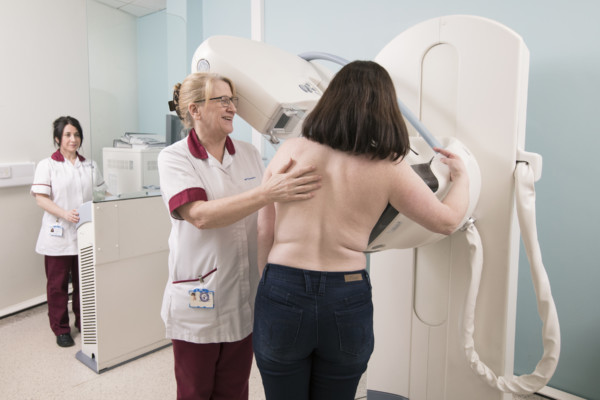Manchester BRC Biomarkers week – Genomics
Manchester is a leading centre for biomarker development, brought together by the NIHR Manchester BRC’s biomarkers ‘cross-cutting’ research theme.
Our biomarkers research spans the fields of genomics, proteomics, clinical imaging, and biostatistics, and supports our mission to drive health improvements, and bridge the gap between new discoveries and individualised care.
Genomics is the field of medicine that studies how all of a person’s genes (their genome) functions, and how they influence the body’s growth, development and normal working.
It uses a range of technologies and science to look at DNA, and how this knowledge can be used to predict and diagnose inherited or acquired diseases, or to personalise treatments, therapies and other interventions.
What are genomic biomarkers?
What is a genome?
Genomics Education Programme – Health Education England
A biomarker can be “any substance, structure or process that can be measured in the body or its products or influence, or which can predict the incidence of outcome and disease.”
Examples of genomic biomarkers include:
- specific genes inherited from a family member that may cause a disease or increase a person’s risk of it
- newborn babies can carry a faulty gene that can cause hearing loss, if they are treated with the antibiotic gentamicin. We measure that faulty gene as a biomarker for that condition
- measuring tiny cells that break off from cancer tumours circulating in the bloodstream, called circulating tumour DNA (ctDNA)
- analysing the genetic make-up of tumours, which may indicate how well patients respond to radiotherapy and help to guide further treatments.

Manchester is home to the Manchester Centre for Genomic Medicine (ManGen), based within Manchester University NHS Foundation Trust’s Saint Mary’s Hospital. The centre is one of the largest integrated genetics facilities in Europe, and forms one of seven genomic laboratory hubs in England.
As well as offering a fully integrated clinical genomics service for the region, the centre also carries out cutting-edge research, across cancer, hearing health, immunology and rheumatology, as well as several other fields outside of those covered by the BRC.
Professor Tony Whetton, BRC Biomarkers Cross-Cutting Theme Lead, said:
“Greater Manchester has fantastic genomics facilities through the support of the North West Genomics Hub. The centre was a major contributor towards the national 100,000 Genomes project, and has built on this success to embed genomics research across a broad area of research areas and conditions. We also have major support in this area from the Cancer Research UK Manchester Institute.
“The role of the BRC is to connect academic scientists from the University of Manchester with clinical colleagues across genomic medicine services. This allows us to discover and test new genomic biomarkers through clinical trials and implement them into clinical practice, creating a personalised approach to medicine for patients.”
Our genomics research – PALB2 high-risk breast cancer gene
Our Cancer Prevention and Early Detection Theme Lead Professor Gareth Evans and his team have contributed to a major international clinical study in cancer genetics, in collaboration with Cambridge University, the NIHR Cambridge BRC and Cancer Research UK.
Around 5-10 per cent of breast cancers are thought to be caused by mutations in faulty genes passed from parent to child. These faults can greatly increase women’s risk of developing breast cancer. Genetic mutations in the BRCA1 and BRCA2 genes are two of these faulty genes.
Another high-risk gene is called PALB2, which has been associated with an increased risk of ovarian, pancreatic, male breast, prostate, and colorectal cancers. Women with this faulty gene have a 14 per cent likelihood of developing breast cancer at age 50, rising to 44 per cent by the age of 80

Last year, this international study confirmed that PALB2 is a major breast cancer susceptibility gene, and established substantial associations with three other cancers.
Speaking of the study, Professor Evans said:
“Manchester BRC is leading major research in genomics biomarkers for cancer risk and stratification, and is helping improve screening and treatments for patients at high risk of the disease. Being host to North West Genomics Hub, we were delighted to contribute to this study, by recruiting patients across our region, and assembling and analysing their genomics data.
“The PALB2 study was a major effort by researchers, both in the UK and a number of countries. This analysed at genomics data from 524 families with the PALB2 gene across 21 different countries, including the UK, covering nearly 18,000 individual participants. Combining this with data on cancer diagnoses, we were able refine our estimates for breast cancer risk, and give new risk estimates for several other cancers caused by PALB2.

“Screening for high risk cancer genes such as BRCA is offered to women with a family history of breast cancer. These latest findings show PALB2 causes a similar increased risk of breast cancer to BRCA2. We hope to incorporate this new data into risk prediction models, which should allow for better screening and care for women found to carry the PALB2 gene.”